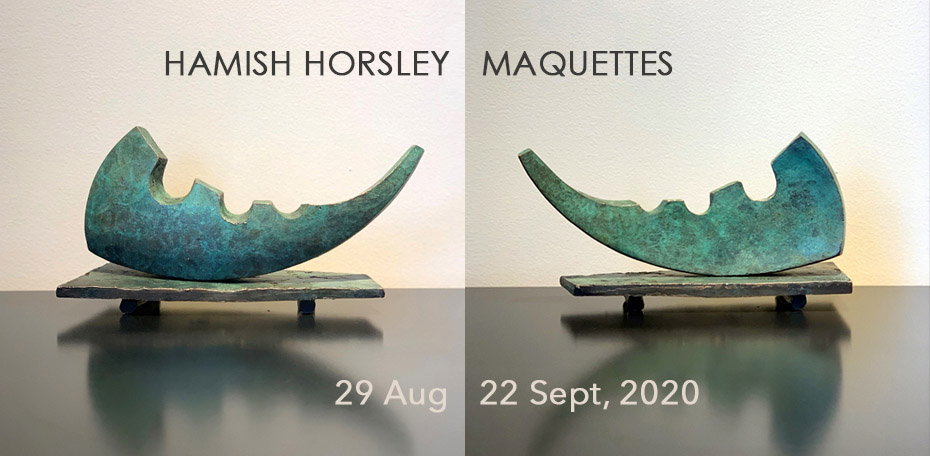Avatar (1997)
(Portland limestone
1450 x 600 x 550 mm
private collection
Guernsey Island, UK)
Bronze maquette
No. 1/10
270 x 135 x 81 mm
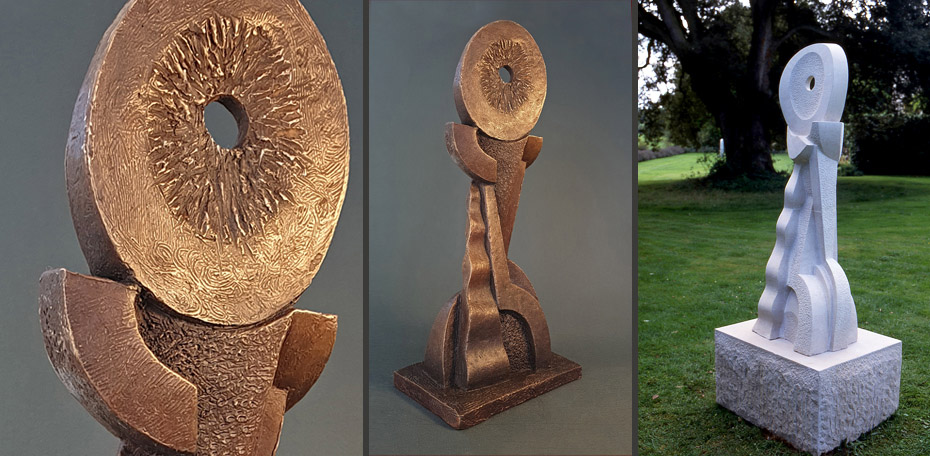
The Wave (1997)
(Portland limestone
2100 x 550 x 400 mm
Private collection
Berkshire, UK)
Bronze maquette
(Edition of 10)
(artists copy on show)
172 x 61 x 61 mm
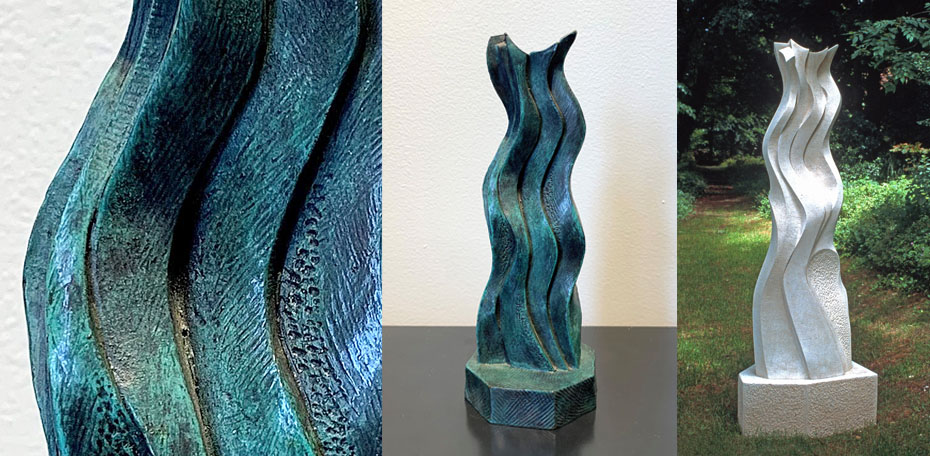
Lungta (1997)
(Portland Limestone
2000 x 500 x 500 mm
Private collection
Suffolk, UK)
Bronze maquette
No. 1/10
165 x 82 x 46 mm
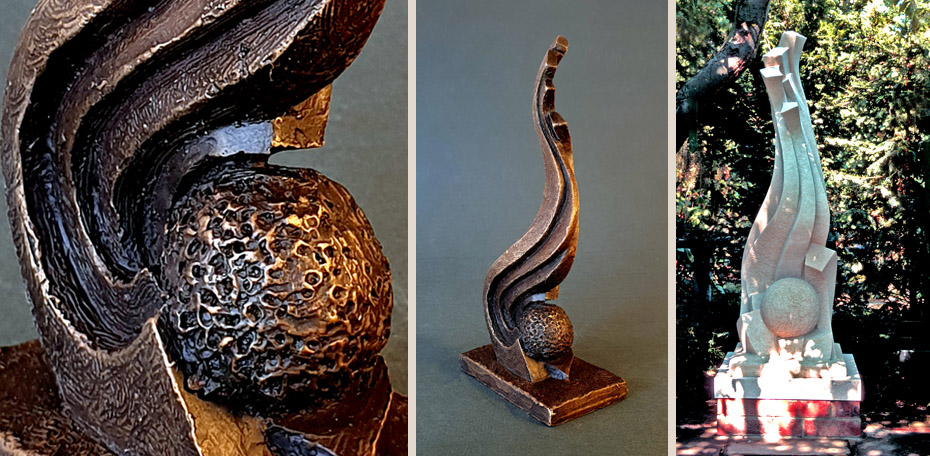
Stele (1998)
Bronze, No. 1/10
190 x 110 x 50 mm
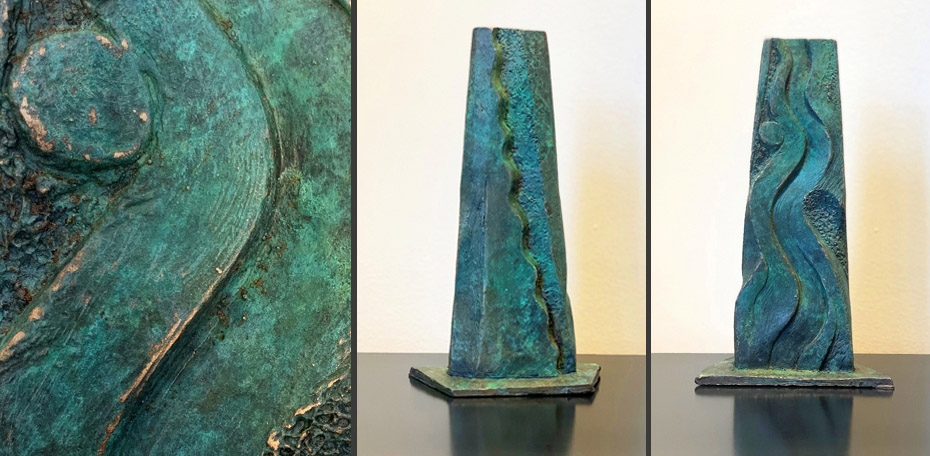
Fragmentation (1998)
Bronze, No. 1/10
185 x 100 x 65 mm
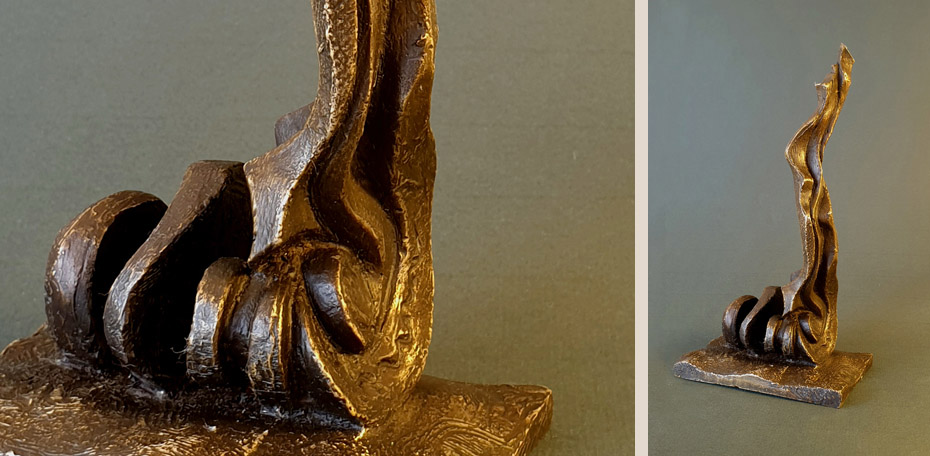
Totem (2000)
(Portland Limestone
2000 x 800 x 300 mm
Chumleigh Gardens
London, UK)
Bronze maquette
No. 1/10
190 x 95 x 45 mm
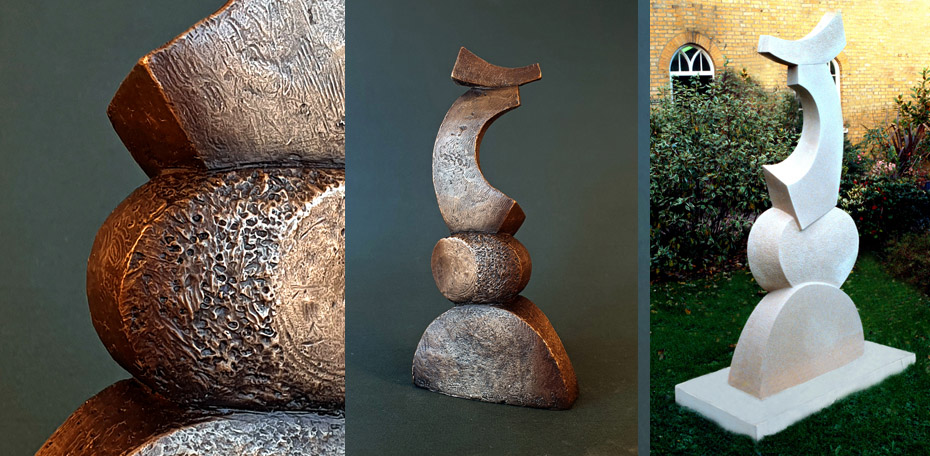
Song Bird (2005)
Bath stone
550 x 260 x 180 cm
Private collection
London, UK)
Bronze maquette
No. 1/10
135 x 60 x 35 mm
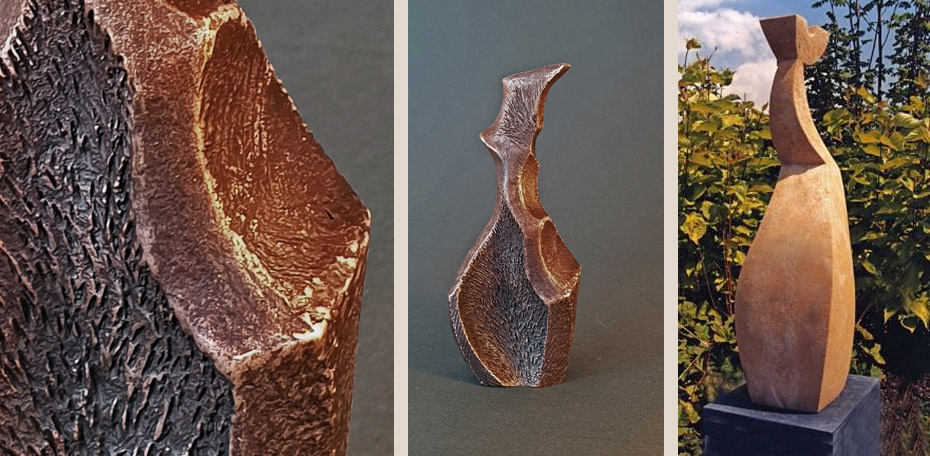
Sky Wave (2005)
(Omani limestone
2800 x 4000 x 1000 cm
Emaar collection
Dubai, UAE)
Bronze maquette
No. 1/10
100 x 130 x 40 mm
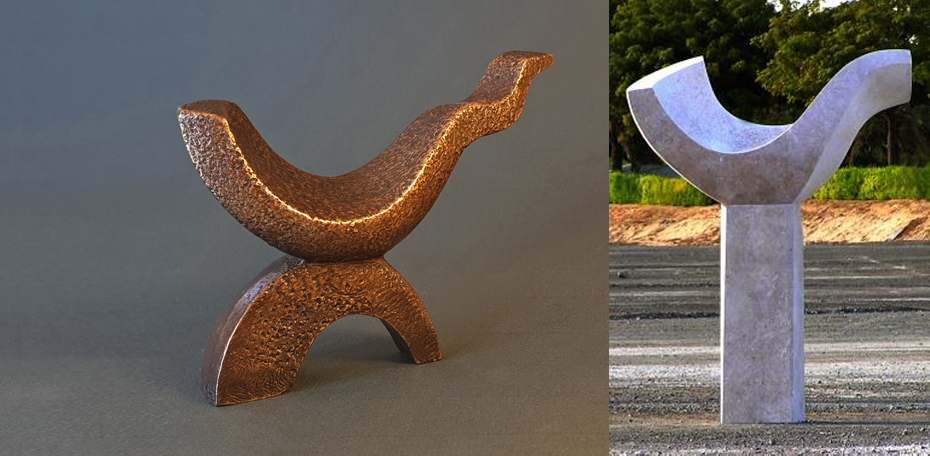
Rising Sea (2011)
(Vietnamese granite
5000 x 200 x 300 mm
Ninh Thuan, Vietnam)
Bronze maquette, No. 1/10
285 x 165 x 70 mm
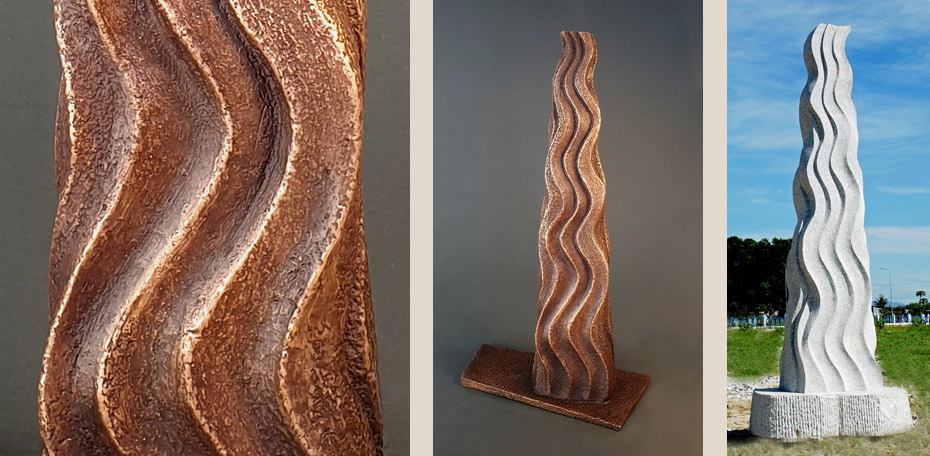
Enclosure (2019)
Bronze, No. 1/10
155 x 110 x 100 mm
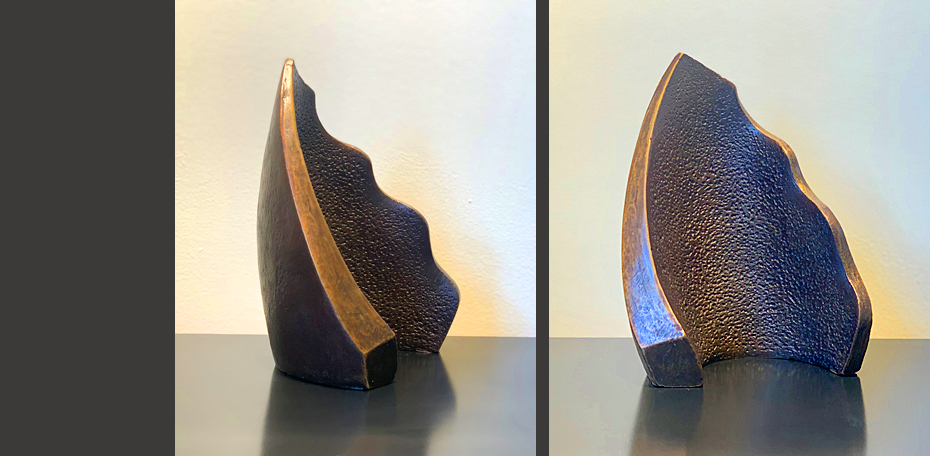
Circular Form (2019)
Bronze, No. 2/10
120 x 140 x 40 mm
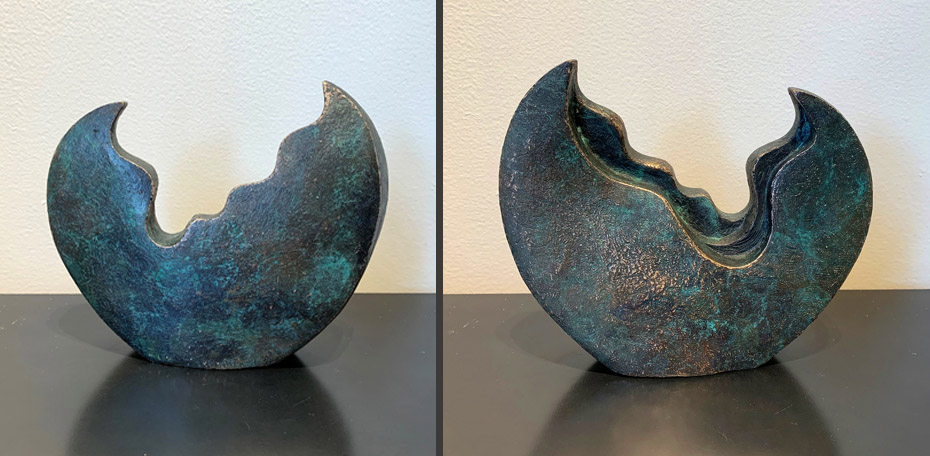
Shard (2020)
Bronze, No. 1/10
180 x 130 x 60 mm
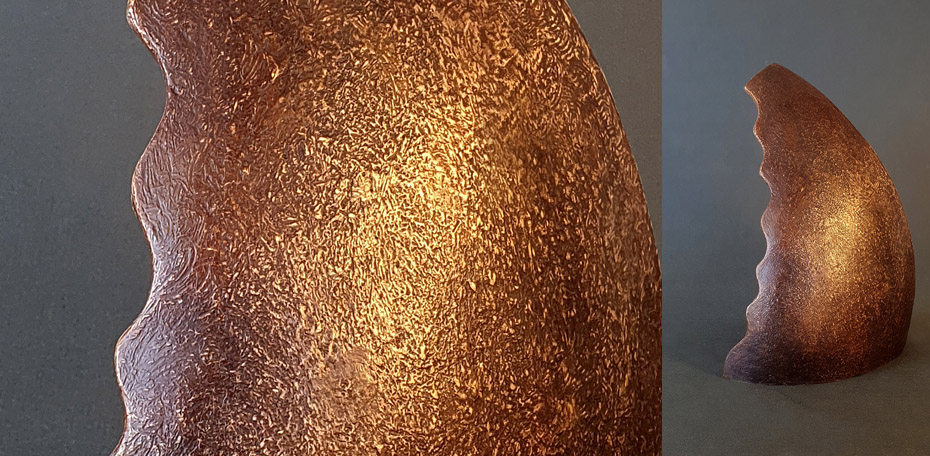
Rajah (2020)
Bronze, No. 1/10
140 x 130 x 55 mm
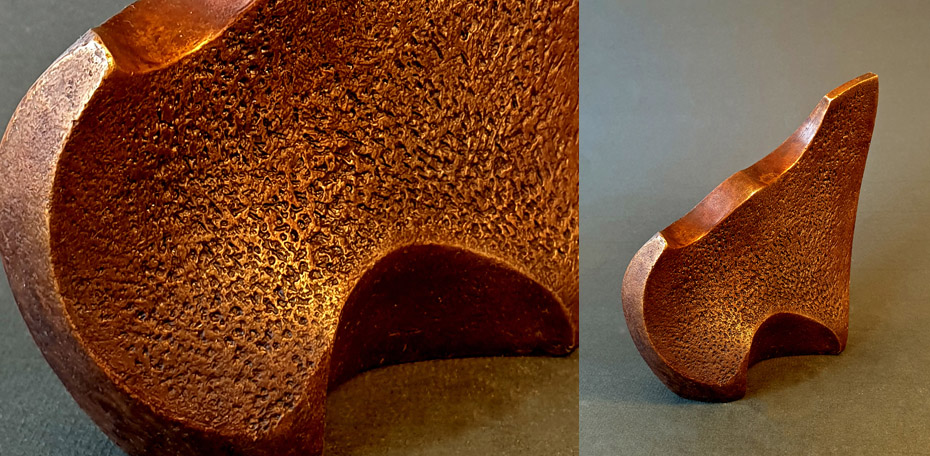
Nava (2020)
Bronze, No. 1/10
110 x 215 x 90 mm
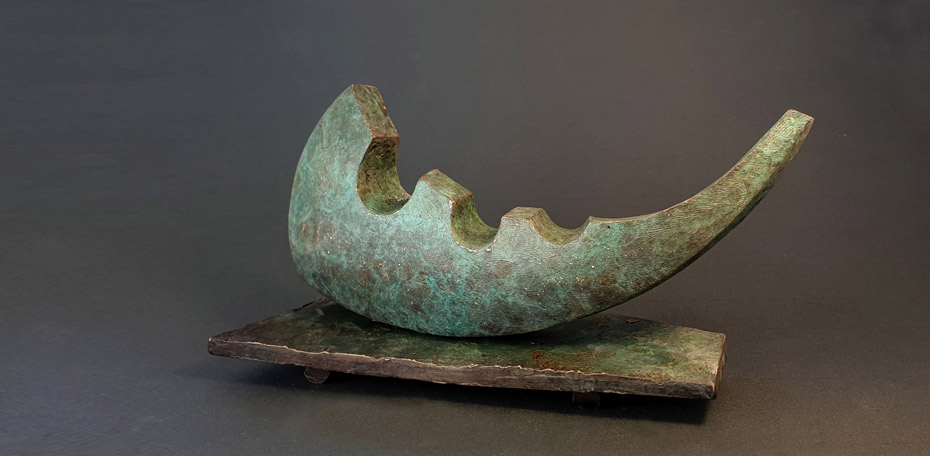
Recline (2017)
Isle of Skye Schist w
Marble base (unique)
105 x 255 x 85 mm
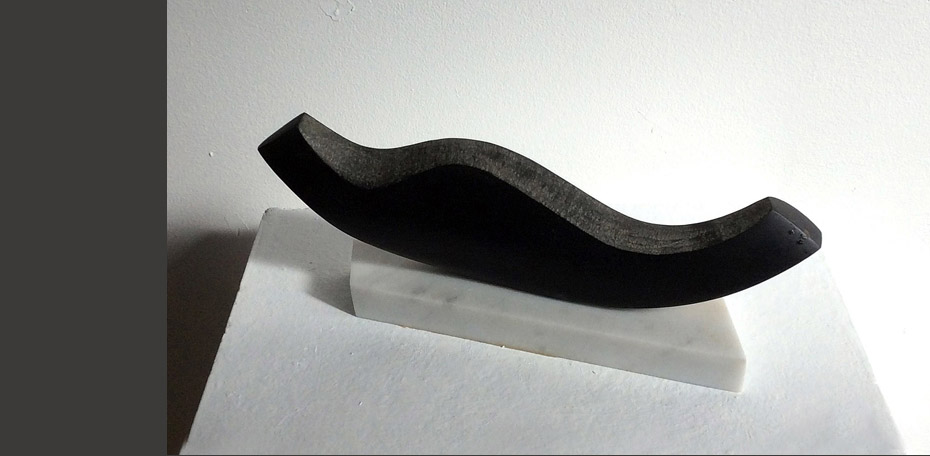
HAMISH HORSLEY : MAQUETTES
Born and raised in Whanganui, Hamish Horsley was based in London for over 30 years, working as a professional artist and teacher. He built an impressive reputation with many significant and often monumental public art commissions and private projects. Foremost of these are The Way in Durham, UK and the widely acclaimed Tibetan Peace Garden situated outside the Imperial War Museum, London.His works are found throughout the UK, Northern Europe, the Middle East and more recently India, Vietnam and Thailand.
Maquettes provides us with a timeline of the artist’s exploration of themes and imagery over the past 20 years. With a continuing focus on environmental harmony and the nature of form and design. Horsley continually adapts the patterns and rhythms occurring naturally in the elements and earth formations. Beginning with small sketches and a lump of clay, Horsley works his way into his projects, finding the immediacy and flexibility in the clay an ideal way to develop sculptural images. These are further progressed in his monumental stone carvings. The clay ‘sketches’ remain both as reference points in his working process and as sculptures in their own right. These intimate works, cast in bronze for this exhibition, mark time and place.
This exhibition also includes a number of Horsley’s sketches, drawings and gouache paintings.


